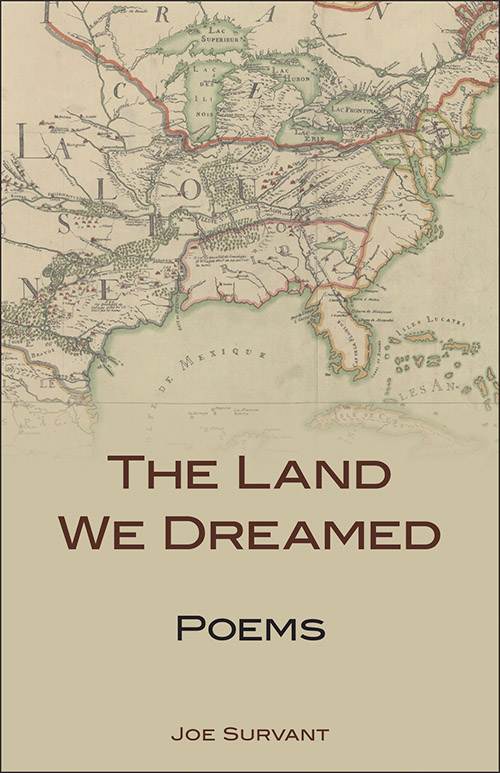 The Land We Dreamed. By Joe Survant. (2014. Pp. 133. $19.95. Paper. Lexington: University Press of Kentucky. 663 South Limestone Street, Lexington KY 40508-4008. www.kentuckypress.com) ISBN: 978-0-8131-4458-0.
The Land We Dreamed. By Joe Survant. (2014. Pp. 133. $19.95. Paper. Lexington: University Press of Kentucky. 663 South Limestone Street, Lexington KY 40508-4008. www.kentuckypress.com) ISBN: 978-0-8131-4458-0.
As our pedigree charts grow backward toward Kentucky’s early settlement days, and as we celebrate the “memory” of those we have never met, the lack of recorded personal experiences becomes glaring. History is full of personal accounts, including those from Kentucky’s earliest days, yet even those extant lack internal dialogue or reflection. If only we could catch a glimpse into the thought life of those who inhabited, explored, or settled Kentucky in the centuries and decades before statehood was even a possibility. Written with this desire in mind, Joe Survant has crafted a collection of poetry – the third in his series about Kentucky – that combines history, speculation, introspection, and events into a diverse powerhouse of voices and time periods. What he has accomplished is both unique and thought provoking.
With the thematic foundation of “dreams”, Survant took what was historically known and applied imagined details to create a series of voices from various points of view. Divided into six sections, the reader is guided through various eras of existence and exploration as time passes over the land we now know as “Kentucky”. While each poem is simplistic and beautiful, when read in sequence they tell a story as diverse as the people who settled the area. As a result, the reader is introduced to many voices, not just the ones we traditionally attribute to Kentucky’s early settlement.
Survant succeeds at bringing to light the perspectives of the pre-historic inhabitants, the 17th century explorers, the 18th century Native American dwellers, the Long Hunters of 1755-56, and the Anglo-settlers of 1750-1792. One of the poignant aspects of this work is its ability to draw the reader into an environment and an experience through the eyes of someone who came before. We are also left with a sense of the emotions and challenges encountered by those early inhabitants. While his subtle, sometimes ballad-esque, construction is enhanced with an obvious celebration of nature, the only area I found to be slightly disingenuous was his portrayal of the Native American voices. I do not believe this was intentional, but when comparing the short, crisp verses of the Native American voices with the longer flowing, more eloquent ruminations of the Anglo-settlers, I could pick up a difference. It was as if the Native American voices were produced as a result of clipped English translation instead of a natural internal dialogue that happened to be in English.
Overall, this is a delightful read, and a great way to slow down and contemplate the experiences of our early Kentucky ancestors. Just as a reference, some of the specific topics covered in these poems include: The Turtle Clan, Fr. Jerome, Noel Chabanel, Fort Pitt, Kyashuta to George Washington, Big Bone Lick, Dr. Thomas Walker, Mary Ingles, Henry Lee, Ella Mulligan, Mary Hite, and Daniel Boone.
free sample simply need to keep in mind that the that nothing want change.
